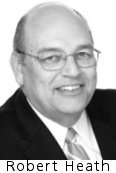11/21/2009
College Station, Texas Red Light Cameras to Come DownJudge allows College Station, Texas to settle a lawsuit and terminate the use of red light cameras to comply with a public referendum vote.

A judge yesterday forced the settlement of a traffic camera company-backed lawsuit with the city of College Station, Texas over the public's November 3 vote to ban red light cameras. Although terms of the deal have not been released, the city council voted 4-0 on November 11 to abide by the results of the election, leaving American Traffic Solutions (ATS) with no hope of continuing its ticketing program without a costly legal battle.
ATS had used its front group, the Keep College Station Safe Political Action Committee (PAC), to hire the lawfirm that won a temporary restraining order forbidding the city from implementing the initiative approved by voters. The company-backed lawsuit argued that the November 3 vote was invalid because the petition placing the measure on the ballot had been filed more than 600 days too late. Under city rules, an "initiative" petition to create a new ordinance has no deadlines, but a "referendum" petition to overturn an existing ordinance has a tight, twenty-day deadline. ATS-backed representatives argued that the petition was a referendum, not an initiative.
City Attorney Harvey Cargill agreed with this assessment and at first attempted to throw the case by filing a response to the lawsuit stating that the city, in effect, did not care which way the judge ruled. City leaders, seeing the political consequences of disregarding the will of voters, forced Cargill to hire the Bickerstaff Heath Delgado Acosta LLP law firm as outside counsel. Attorney C. Robert Heath on Thursday filed a far more impressive response to the ATS-backed suit, citing the state supreme court's standing interpretation of election law.
"The court explained that the policy behind requiring petitions as a prerequisite to calling certain elections is to provide a mechanism to insure that an election will not be called unless there is some indication that there is a desire of a significant proportion of the electorate for the change requested and that, if an election is called, there will be a reasonable possibility that the measure will pass," Heath argued. "Once the election has occurred, however, the question of the process of calling the election is of little or no continual relevance since the people will have spoken, and the court's primary concern will become to uphold the expressed will of the people."
Heath cited the long-standing precedent established by the Texas Supreme Court decision Scarborough v. Eubank.
"The object of a popular election is that the will of the greater number of voters may prevail," the high court wrote in Scarborough. "Hence the important matter in every election is that the will of the voters should be fairly expressed, correctly declared, and legally enforced. Compared to this, the question as to the manner and time of ordering the election is of trivial moment."
The November 3 election in College Station was well-publicized and each ballot was clearly marked "For Ordinance bans cameras" and "Against Ordinance allows cameras." A majority of residents selected the option to ban cameras. The city council will meet Monday at 7pm to ratify the settlement.


